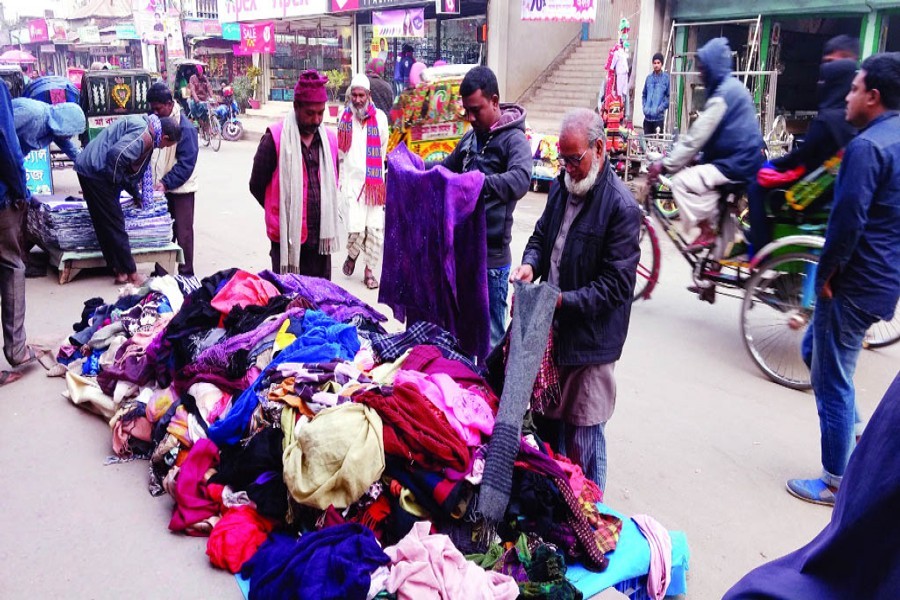The arrival of winter in the first week of the Bangla month of Poush, its stay throughout Magh and taking leave before the advent of Falgoon was once a common seasonal feature in greater Dhaka. In years, the cold season would seem unwilling to leave. As part of a seasonal quirkiness, winter would dig in its heel for the half of Falgoon, the Bangla spring. In the northern and northeastern Bangladesh, winter would make its assaults quite mercilessly. Due to the severity of cold and the widespread poverty, winter used to be considered a dreaded season in those regions. Due mainly to climate change coupled with global warming, the ferocity of winter appears to be declining --- not only in the greater northern region, but throughout the country including Dhaka. In years, the season would come and make exit almost invisibly. Except those with a sharp sense of feeling, the general people couldn't understand clearly if winter had visited the country in some years. Many would greatly miss the season.
The 21st century has continued to watch a great upside-down in Earth's climate. Veritably prompted by the global climate change, mankind in the recent decades is now becoming used to unthought-of changes in nature's behaviour. The uncannily punctual arrival and departure of the European and the American continent's seasons has been replaced by irregularities. Apart from the unusually prolonged snowfalls in Europe and America, the intermittent onslaughts of storms, downpours and floods have radically changed the nature of these vast chunks of Earth. Many other areas in the vast Asia also witness these changes in the behaviour of nature. The changed behaviour of winter in Bangladesh can be viewed as integral to these weather-related oddities.
The arrival and departure of winter in the country has in the recent years been occurring in an incredibly timely manner. This is also an oddity. Unlike in the past, the open-air warm clothes market tries to keep the dreaded chill at bay. There is no dearth of woolen wear for men and women, --- and, of course, babies. There are blankets made in Bangladesh, as well as jackets, coats and monkey caps. In fact, the continuously expanding market of winter garments needs not import second-hand warm clothes nowadays. These sales points keep their shelves filled with winter garments made at Bangladesh factories. Economic policymakers can start brainstorming vis-à-vis the pros and cons of exporting cheap winter clothes to the low-income countries. This might emerge as an added channel of earning foreign exchange in the dreadful pandemic times.
The prices are within the reach of the lower-middle class and also the poverty-stricken people. They save money from their hard-earned wages to buy these winter garments. However, the affluent segments have never bothered about purchasing these clothes. Winter appears to them as a 2-month time of comfort, merry-making and tour within the country. Lately, even since the time of the pre-pandemic period, the bite of winter prompted people to crowd the winter garment markets in droves. In the distant past, winter garments were chiefly available in a few fixed open-air markets in Dhaka. Now they are spread throughout the country. The busy Bangabandhu Avenue and the Gulistan and Baitul Mokarram areas these days turn into sprawling markets selling all kinds of winter clothes. Even in such abundance of warm clothes, many homeless people in Dhaka and other cities are found deep asleep on the verandas of supermarkets. Winter bites do not disturb their sleep. They are happy on being covered with sheets of polythene, or passing the night in small improvised shelters made of cardboards.


